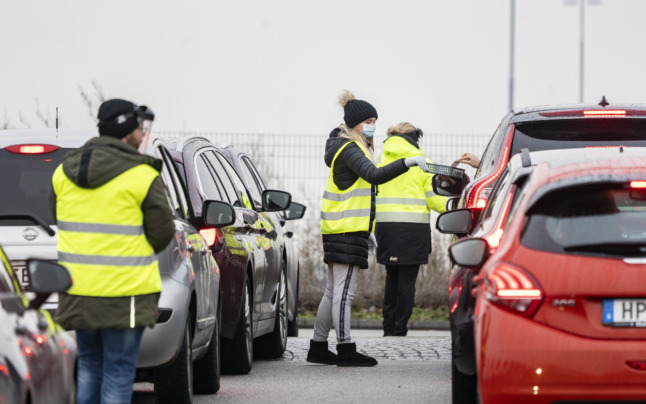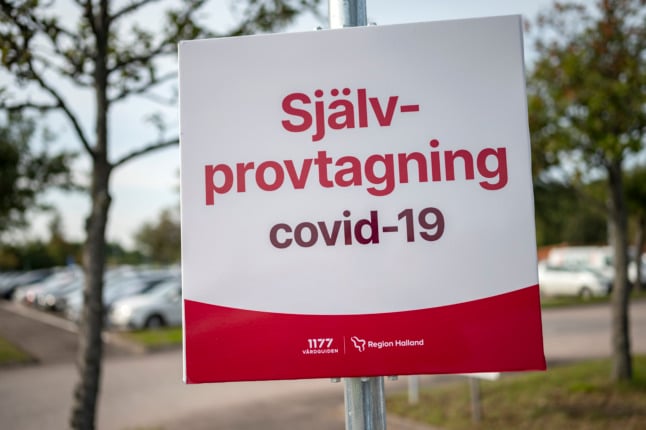In southern Swedish region Skåne, for example, PCR test slots in some areas are fully booked up to five days in advance, resulting in those with symptoms potentially reaching the end of their seven-day quarantine before test results are returned.
This has knock-on effects for schools and workplaces, as those experiencing symptoms are advised to stay at home until they receive a negative test result.
Region Kronoberg has now announced a complete pause in PCR tests for the general public, explaining that the region is reaching its daily limit for the amount of tests it is allowed to send off for analysis per day. Testing for healthcare workers will be unaffected by the ban.
“What we’re describing is a national problem with test capacity, Kronoberg is not the only region experiencing issues,” regional director Martin Myrskog explained at a press conference.
Until recently, the region was allowed to submit 1,200 tests for analysis per day. This has now been increased to 1,900, but is still too low, TT reports.
“On Monday and Tuesday this week, we issued 9,000 tests,” said Myrskog.
In the first week of January, almost 429,000 tests were analysed in Sweden, according to the Public Health Agency, with capacity expected to increase further.
However, the agency warns that regions may need to prioritise their resources in the face of increased cases of Omicron across the country.
This could include prioritising testing in areas affecting vulnerable individuals, such as healthcare or elderly care, or considering testing of symptom-free individuals as a lower priority.
The Public Health Agency also recently removed earlier recommendations that symptom-free travellers returning to Sweden get tested, stating that this is no longer necessary due to Omicron becoming widespread in Sweden.



 Please whitelist us to continue reading.
Please whitelist us to continue reading.
Member comments